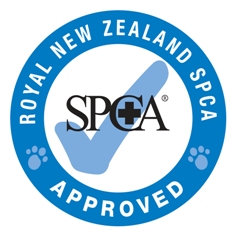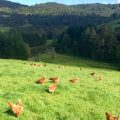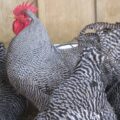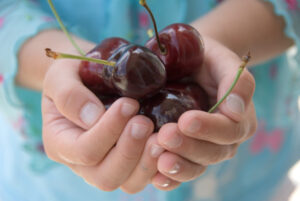
Virgil Evetts
The following are some of my least favourite arguments against eating meat. Included are my standard responses. Hopefully this will save us a bit of time and effort later on.
- ‘Eating animals is cruel’: Come on, really? Nature is cruel. Get over it.
- ‘You have no right to take the life of another animal’: Yes I do. I’m an omnivore; I’m designed to consume flesh. I have both right and motivation.
- ‘Eating animals makes you a murderer’: No, killing another person makes you a murderer. (The jury’s still out on killing dumb-dumbs though.)
- ‘How would you like to be kept in a cage, awaiting your death?’: Obviously I wouldn’t like that much at all, because I’m a fully self-aware organism . Most free-range or open-farmed animals in all probability have no concept of their captivity, let alone the finality of their situation. You are confusing farms with death row. I hasten to add that the same cannot be said for factory-farmed cattle, crate-raised pigs or battery chickens.
And so the naivety goes on, and my interest in engaging dwindles.
The thing is, I know that my opinions are just MY opinions, but as is rather de rigour with agitators in general, animal-rights campaigners tend to regard their opinions as absolutes. I don’t believe in absolutes: there is simply what you believe and what other people believe.
I firmly believe that it’s ok to eat animals, but take the ethical provenance of any meat I consume very seriously. In other words, I do not believe that it’s ok to eat factory-farmed pork and chicken, nor battery-farmed eggs. And you better believe I judge you if you don’t agree. But hey, what do I know?
This week sees the official launch of the RNZSPCA Blue Tick animal welfare accreditation programme, for providers of cruelty -free egg and meat products. I like the RNZSPCA – well who doesn’t? I particularly appreciate their realistic approach to commercial animal welfare. They don’t judge meat eaters – nor farmers for that matter. They provide guidelines for humane farming practice and animal husbandry. This is infinitely more constructive than ‘liberating’ chickens and hurling abuse at anyone who enjoys a crispy rasher or two. The Blue Tick scheme is a way of identifying producers (with a distinctive Blue Tick, no less) that offer the highest possible level of care and humane treatment to livestock. I trust the RNZSPCA unreservedly, and the Blue Tick now forms the basis of how I choose pork and chicken products. No Blue Tick, no sale. To say that I urge you to do the same is the extent of my animals-rights campaigning here.
On a less preachy note, I went along to the official media launch/brunch for the Blue Tick programme, held atop the Hyatt Regency in Auckland the other day. Keynote speaker, and the nation’s favourite chefing son, Peter Gordon, talked at length and with some conviction about his personal commitment to ethically raised animal products. Hopefully a patron of his calibre will give serious cache to the Tick. He also designed the not-insubstantial brunch menu, which consisted of various clever ways with free-range eggs, bacon, ham, pork and duck. Star highlights for me were the smoked salmon with ham on a kumara rosti, with a quite-miraculous clear tomato jelly; and crispy deep-fried eggs served with a spicy citrus dressing. The boy sure can cook.
I will leave you now with a rather sobering story PG told about pigs. A group of pig farmers he knows in Spain kept losing pigs from one particular paddock. Convinced that swine-rustlers were to blame, they set up night-vision cameras and waited to pounce. But the cameras didn’t capture any night time raids, but instead revealed some alarmingly clever hams-to-be. The pigs had outwitted the normally impassable barrier that is a cattle-stop. They dropped and rolled. Simple yet brilliant! Thank god chickens, sheep and cows are so blissfully dim.
For more information about the Blue Tick, click here.






About time humane practices were put into place. I ammostly vegetarian and only eat chicken with caution. My family are meat eaters though and wary of dodgy pracices in the way meat is produced. Having a blue tick accreditation is a brilliant idea and we can rest easy easy knowing that the animal has had a good life and been well looked after and not suffered. Generally the meat tastes a lot better from animals that have been less stressed. more tender from fewer stress hormones being released I a gather. Hope we all buy Blue tick and really get in and support it. Geat blog Virgil.
Although I eat very little meat and never red meat, I believe the focus should be not on how unethical it is to eat our fellow animals on this planet, but how we treat them whilst they are here.
Sure, the whole idea of raising them just to eat is something many deplore but whilst we still have such a tradition, let us do ALL we can to making sure the animals have a happy life (no more than we would want for ourselves).
My family members get our meat from Lake Farms, Lake Karapiro. It’s the best meat they have ever tasted, economically priced and delivered to the door but best of all, the people genuinely care about the welfare of their herd.
Freedom Farms bacon is another on our list but their prices are quite high for budget shoppers.
I like the idea of consumer demand changing the way we treat animals in New Zealand and am frankly appalled that MAF has done so little over the years.
We have managed to popularise organic foods and free range eggs, now I hope the power of our purse will force suppliers to treat animals humanely.
As someone with a small flock (of three at present), I have to admit that sheep are very clever at appearing dim. However, they can be crafty when they want to be. As for cattle, I’ve had one chew through the one wire that was keeping a portable electric fence live (to get to the grass at the other side). She tasted delicious, mind you.
I have heard of sheep rolling over cattle grids also, but could be an urban myth. I know that hot wires don’t stop them.
As for chickens, despite them having a brain the size of a pea, and me having a brain the size of a baby pumpkin, they still manage to hide their eggs where I can’t find them.